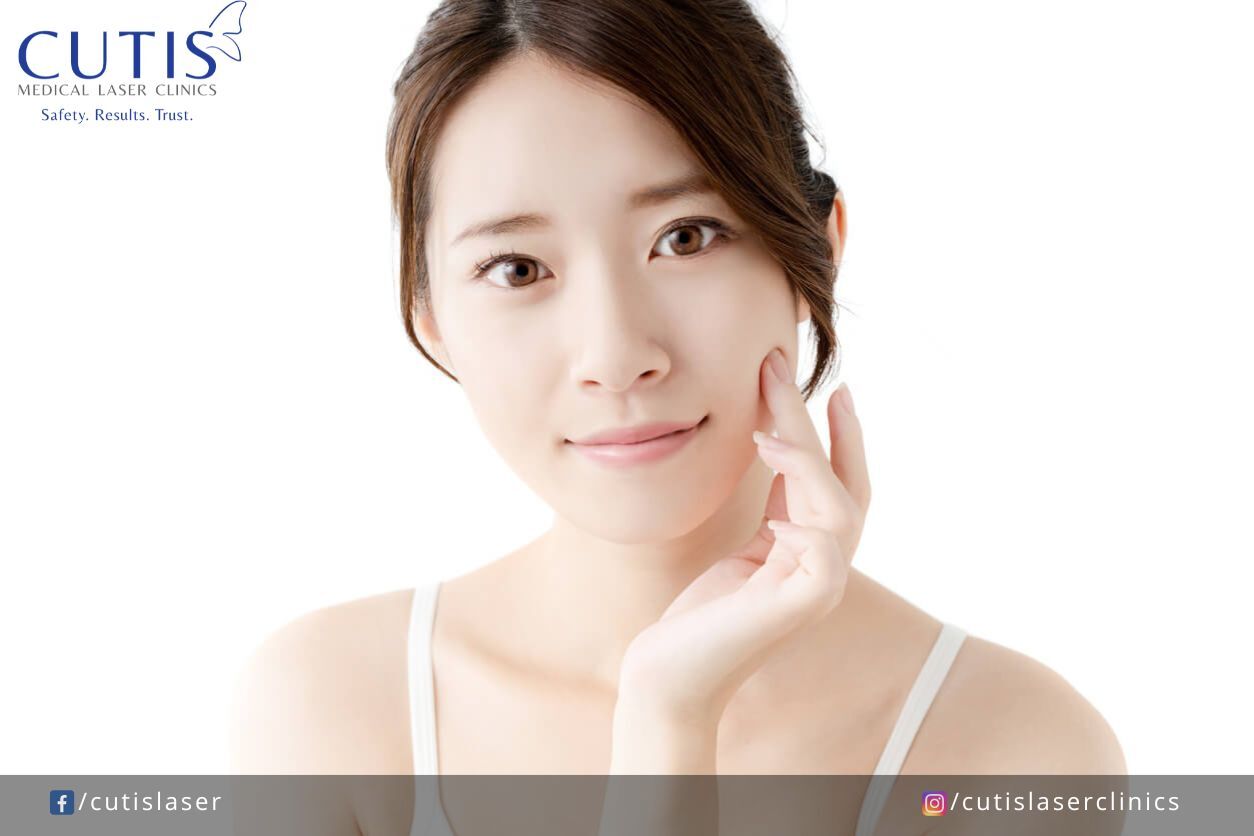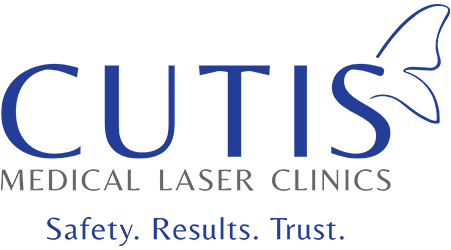3 Key Takeaways
- The truth about collagen in skincare
Collagen molecules are too large to penetrate the skin barrier, meaning they sit on the surface and can only help with hydration, not collagen production. - Certain skincare ingredients help stimulate collagen production
Ingredients like peptides, retinol, and vitamin C can signal your skin to produce more collagen, improving firmness and reducing fine lines over time. - Lifestyle and professional treatments also play a role
Sun protection, a balanced diet, and treatments like chemical peels, microneedling, or PDLLA all help maintain and boost collagen for healthier, more resilient skin.

It’s no surprise that more and more people are looking for ways to boost their skin’s collagen. As the most abundant protein in the body, collagen plays a big role in keeping skin firm, plump, and youthful. It provides structure and elasticity, supports healing, and helps maintain a smooth, resilient complexion.
But as we age, our natural collagen production gradually slows down, leading to visible signs of aging like fine lines, sagging, and dullness. So, it’s only natural to wonder: If collagen is essential for youthful skin, can we just apply it topically to replenish what’s lost?
Let’s clear this up and explore whether collagen can truly be absorbed through the skin, and what actually works to support your skin from the outside in.
But first, what is collagen?
As previously mentioned, collagen is the most abundant protein in your body (making up around 30% of your total protein). Made from amino acids, it plays an important role in your skin, bones, muscles, tendons, and joints, acting as the “glue” that holds everything together.
In the skin, collagen is what gives it firmness, elasticity, and that youthfulness. Of the 28 known types of collagen, Type I is the most common, making up about 90% of the body’s collagen. It provides structure to your skin, bones, ligaments, and tendons, and is said to be even stronger than steel, gram for gram.
Why do we start losing collagen?
Declining collagen is one big part of the story of why your skin starts to wrinkle or your joints feel stiffer over time. This is because it is a vital protein that gives structure and support to your skin, joints, and even your digestive system.
While there’s no standard blood test to measure collagen levels, scientists have developed ways to track it at the cellular level. But for most of us, there are some visible signs that our collagen may be declining. These include:
- Fine lines and wrinkles
- Loss of skin firmness or elasticity
- Thinner, crepey skin
- Sagging in areas like the cheeks or jawline
- Joint stiffness
- Digestive discomfort
The natural decline in collagen typically begins in your mid-to-late 20s, gradually reducing year by year. It’s one of the key reasons we start to see and feel the effects of aging. Several external factors can also accelerate collagen breakdown, including:
- Sun exposure
- Smoking
- Excessive alcohol
- Chronic stress
- Environmental pollution
But it’s not just about age; your diet plays a major role too. Without the right building blocks, like amino acids and essential nutrients, your body can’t make enough collagen to keep up. Poor nutrition can accelerate the loss, making it harder for your skin and body to repair and renew themselves over time.
Can collagen be absorbed through the skin?
The truth is: collagen molecules are too big to penetrate the skin. So, when you see creams or serums infused with “collagen”, know that the ingredient won’t actually make its way into your skin’s deeper layers. They are more likely to just sit on top of the skin, and not rebuild its structure.
This doesn’t mean, however, that these products are completely useless. Topical collagen can still serve as a humectant, helping your skin feel more hydrated and plumper. Just know that it won’t boost your collagen production on its own.
You should also be wary of collagen-infused fabrics that claim anti-aging benefits. One that is heavily talked about is SKIMS’ face wrap. This promises to “snatch” or sculpt the jawline using “collagen yarns” for ultra-comfortable jaw support.
While it may offer temporary de-puffing through compression, it won’t deliver lasting anti-aging effects or physically reshape your face. These claims can be misleading and aren’t backed by scientific evidence.
So, what actually helps with collagen?
You can’t stop collagen loss entirely, but you can support your skin and slow down the process. Here’s how:
1. Lifestyle choices matter
Healthy habits go a long way. Here are some of the things that can help:
- Wear broad-spectrum sunscreen with SPF 30 or higher every day — even when it’s cloudy.
- Eat a balanced diet rich in antioxidants and amino acids.
- Limit sugar and alcohol, as too much can accelerate collagen breakdown.
- Don’t smoke. This habit causes oxidative stress and speeds up the breakdown of collagen.
- Manage stress, as it can impact your skin and hormones.
2. Use collagen-supporting ingredients in skincare
While the collagen molecule is too big to penetrate the skin’s outer layers, there are ingredients that stimulate cell turnover and help with new collagen synthesis, as well as trick the skin into producing more collagen.
Here’s what to look for in your routine:
-
- Peptides – are short chains of amino acids that act as signaling molecules, tricking your skin to produce more collagen.
- Retinol – is a vitamin A derivative that increases cell turnover and helps stimulate the fibroblast to produce more collagen.
- Vitamin C – is an antioxidant that protects existing collagen and boosts new production.
- Vitamin B3 (niacinamide) – is also an antioxidant that neutralizes free radicals and improves skin barrier that supports the maintenance and production of collagen.
For further reading: Collagen Banking in Singapore: What You Need to Know
3. Consider professional treatments
At Cutis, we have several treatments that can help stimulate collagen production and promote younger-looking skin.
Chemical peels – Our chemical peels in Singapore can be tailored to your skin type and gently resurface the skin, stimulating collagen in the process. Our VI Peel Precision + Peptides (formulated with Smart Peptide Technology) targets pigmentation and melasma, while boosting collagen, and reinforcing skin function.
Microneedling or laser treatments – Both create controlled “micro-injuries” in the skin, which jumpstarts collagen and elastin production during the healing process. Collagen synthesis takes about 2 to 3 months and will help improve skin texture and firmness during that period.
PDLLA – is a hybrid collagen booster that delivers instant hydration and stimulates long-term collagen production. It combines poly D, L-Lactic acid (PDLLA) with non-cross-linked hyaluronic acid (HA), working as a scaffold to encourage fibroblasts to produce new collagen.
The combination of PDLLA and HA works synergistically to give the skin a fresh, supple, and revitalized appearance. Benefits include:
- Dual action, hydration and collagen production
- Improves skin laxity, wrinkles, and fine lines
- Can be used to treat acne scars
- Natural-looking results with gradual improvements
- Lasting results (up to 24 months)
- Minimal downtime
- Well-tolerated by various skin types
It’s not about applying collagen; it’s about stimulating it
No, collagen can’t be absorbed directly through your skin, but that doesn’t mean your efforts in taking care of your skin are wasted. Focus instead on supporting your body’s natural collagen production through good skincare, healthy habits, and when needed, professional treatments.
If you’re looking for a more personalized approach, WhatsApp us at +65 9780 2079. Book a consultation with one of our aesthetic doctors in Singapore for treatment and product recommendations suited to your skin goals.
- If you would like to be an informed patient, please contact us at +65-6801-4000 or
hello@cutislaserclinics.com. - Cutis Medical Laser Clinics, 9 Scotts Road Pacific Plaza, Scotts Medical Center #08-07, Singapore – 228210
+65-6801-4000 - hello@cutislaserclinics.com
